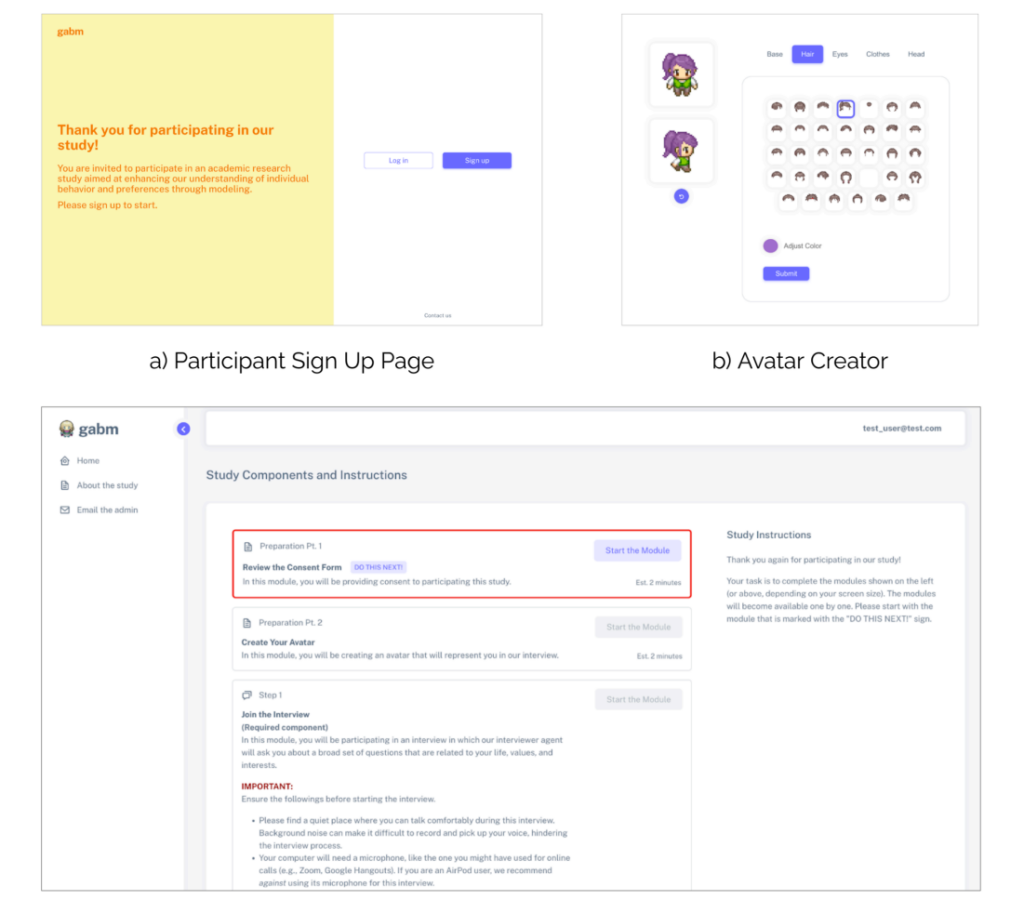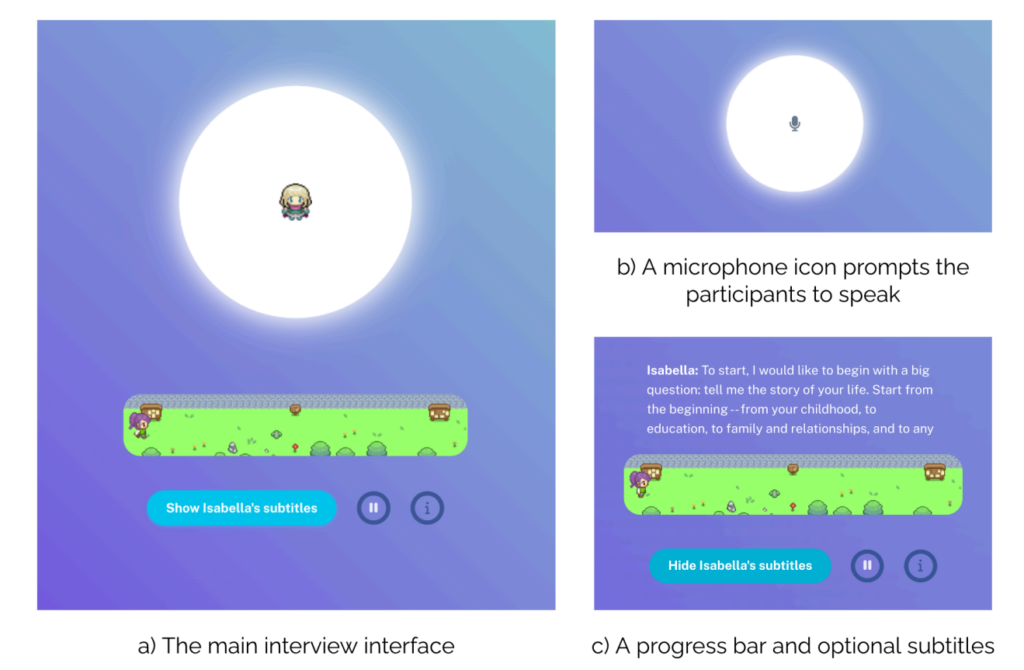AI is changing our world, but the stories of who build it often get lost in the noise.
Behind the headlines and hype, a group of women are solving AI’s fundamental challenges – despite working in an industry persisently impacted by gender inequality.
Women make up just 22% of AI professionals worldwide and only 12% of AI researchers. In academic publishing, female researchers account for just 29% of first authors on AI papers, a number that hasn’t increased since the mid-2000s.
This is a story about ten leaders who have influenced AI despite the odds being stacked against them.
Their work – from chip architecture to bias detection, from environmental impact to safety systems – is vital to the modern AI industry and its future direction.
Fei-Fei Li

LinkedIn: https://www.linkedin.com/in/fei-fei-li-4541247/
Known as the “godmother of AI,” Fei-Fei Li’s defining influence on AI spans years of commitment to the field.
Born in Beijing and immigrating to the United States at age 16, she has been instrumental in transitioning AI from a niche technology to something scalable and broadly accessible.
As co-director of Stanford’s Human-Centered AI Institute, Li has brought attention to ‘human-centered AI,’ which places human values at its core. Many of her works feature on university reading lists; papers with Li as a named writer have amassed an extraordinary 285,343 citations in total.
One of Li’s key career milestones was creating ImageNet in 2007, a massive dataset containing over 15 million labeled images across 22,000 categories.
ImageNet effectively solved one of computer vision’s most fundamental challenges: teaching machines to recognize objects with human-like accuracy. The dataset and the projects that emerged from it catalyzed important advancements in deep learning.
Simultaneous with her technical achievements, Li’s commitment to diversity in AI led her to co-found AI4ALL, which has provided opportunities for thousands of underrepresented students to enter the field. Many of the organization’s alumni have secured positions at major tech companies and established their own AI startups.
In 2024, Li’s co-founding of World Labs marked a new chapter in her career. The company’s focus on “spatial intelligence” aims to bridge the gap between AI’s understanding of digital and physical spaces.
With $230 million in funding from leading tech investors, including Andreessen Horowitz and NVIDIA’s NVentures, World Labs rapidly achieved unicorn status.
Joy Buolamwini

LinkedIn: https://www.linkedin.com/in/buolamwini/
Dr. Joy Buolamwini’s journey to becoming a leading voice in AI ethics was triggered by a deeply personal experience.
While working with facial analysis software as a graduate student at MIT, she discovered these systems struggled to detect her dark-skinned face unless she wore a white mask. This sparked large-scale research into AI bias and prejudice, challenging the discourse around AI decision-making.
Buolamwini’s “Gender Shades” project, conducted through MIT Media Lab and much-cited across the AI research community and media, including here on Dailyai.com, provided the first comprehensive evidence of racial and gender bias in commercial AI systems.
The study revealed error rates of up to 34% for darker-skinned females compared to just 0.8% for lighter-skinned males. Leading tech companies, including Microsoft, IBM, and Amazon, subsequently assessed their facial recognition technologies.
As founder of the Algorithmic Justice League (AJL), Buolamwini has created a movement that combines research with advocacy. Combining art and science, AJL has created influential documentaries and projects, building support for AI technologies that truly serve everyone equally.
Buolamwini’s 2023 book “Unmasking AI” became a national bestseller, offering unprecedented insights into the hidden biases within AI systems. The book not only documents technical failures but also provides a blueprint for creating more equitable AI systems.
Timnit Gebru

LinkedIn: https://www.linkedin.com/in/timnit-gebru-7b3b407/
Dr. Timnit Gebru’s impact on AI ethics has accelerated the industry’s critical thinking, forcing it to be more introspective of impacts and consequences.
Born in Addis Ababa, Ethiopia, Gebru’s perspective as both a technical expert and advocate for marginalized communities has been formidable in challenging the industry status quo.
Her co-authored paper “On the Dangers of Stochastic Parrots” was a watershed moment in AI ethics, challenging the fundamental assumptions behind large language models (LLMs).
Some of the paper’s core points were that today’s frontier AI models fail to build in relativist cultural norms and values, essentially acting as static monoliths that ‘live’ predominantly in the Western world. Rather than understanding language, LLMs primarily manipulate it and are tough – if not impossible – to audit for bias due to their ever-spiraling complexity.
The paper’s controversial reception and her subsequent departure from Google’s Ethical AI team sparked fierce debate about corporate influence on AI research.
The founding of the Distributed AI Research Institute (DAIR) in 2021 represented Gebru’s vision for truly independent AI research. DAIR’s structure advocates for community-rooted research free from corporate influence.
Gebru’s selection to receive the 2025 Miles Conrad Award recognizes her transformative impact on the field. Her work continues to inspire a new generation of researchers, positioning AI as both a technical frontier and battleground for social justice and equality.
Daniela Amodei

LinkedIn: https://www.linkedin.com/in/daniela-amodei-790bb22a/
Daniela Amodei’s career bridges politics, global health, and technology, culminating in her role as co-founder and president of Anthropic, one of generative AI’s most influential startups.
After graduating summa cum laude from the University of California, Santa Cruz, with a degree in English Literature, Amodei worked in political communications, including managing messaging for the US Representative Matt Cartwright.
In 2013, she joined Stripe, starting in recruitment before transitioning into risk program management. Working across machine learning (ML), data science, engineering, legal, and finance teams, Amodei developed a deep understanding of technology’s regulatory and operational challenges.
By 2018, she moved to OpenAI as Vice President of Safety and Policy, overseeing safety, policy, engineering, and human resources. During this period, Amodei played a key role in shaping AI governance strategies. However, in 2020, Amodei and several colleagues, including her brother Dario Amodei, left OpenAI over concerns about the company’s direction in AI safety.
In 2021, the Amodei siblings co-founded Anthropic to build AI systems designed for reliability, transparency, and alignment with human values.
Under Daniela’s leadership, the company has grown from a small team to more than 800 employees and has attracted massive investment, including $4 billion from Amazon.
Sasha Luccioni

LinkedIn: https://www.linkedin.com/in/sashaluccioniphd/
Dr. Sasha Luccioni, born Alexandra Sasha Vorobyova in Ukraine in 1990, moved to Canada at the age of four and quicklydeveloped an early interest in science.
She later earned a B.A. in Language Science from Université Paris III: Sorbonne Nouvelle in 2010, followed by an M.Sc. in Cognitive Science with a focus on Natural Language Processing from École Normale Supérieure in Paris in 2012. In 2018, Luccioni completed her Ph.D. in Cognitive Computing at Université du Québec à Montréal.
Dr. Luccioni began her professional career at Nuance Communications in 2017, focusing on natural language processing and machine learning to enhance conversational agents. She then joined Morgan Stanley’s AI/ML Center of Excellence in 2018, working on explainable AI decision-making systems.
In 2019, she became a postdoctoral researcher at Université de Montréal and Mila, collaborating with Yoshua Bengio on the “This Climate Does Not Exist” project, which used generative adversarial networks (GANs) to visualize climate change impacts.
In 2021, Dr. Luccioni joined Hugging Face as a research scientist and Climate Lead, where she focuses on quantifying the carbon footprint of AI systems and promoting sustainable practices in machine learning development. She has been instrumental in developing tools like CodeCarbon for real-time tracking of carbon emissions from computing.
Her research on the BLOOM language model highlighted its potential to generate over 50 metric tons of CO₂ during its lifecycle, equivalent to 80 transatlantic flights – research we’ve cited at Dailyai.com on a few occasions.
Beyond her research, Dr. Luccioni is a founding member of Climate Change AI and serves on the board of Women in Machine Learning, mentoring underrepresented minorities in the AI community.
In 2024, her contributions were recognized by TIME Magazine, naming her one of the 100 most influential people in AI, and by Business Insider on its AI Power List.
Mira Murati

LinkedIn: https://www.linkedin.com/mira-murati-4b39a066/
Born in Vlorë, Albania, Mira Murati was one of the most influential figures in OpenAI and has since founded her own AI research lab – yet to be named – focusing on artificial general intelligence (AGI). continues
Within months, Murati assembled an all-star team, including Jonathan Lachman and several key researchers from OpenAI, Character AI, and Google DeepMind.
As OpenAI’s Chief Technology Officer from 2018 to 2024, she orchestrated the development of technologies that have fundamentally altered our relationship with AI.
Under her leadership, OpenAI released ChatGPT, which achieved the fastest user adoption rate in consumer technology history, reaching 100 million users within two months. She also oversaw the development of DALL-E, which revolutionized AI image generation, and GPT-4o, one of 2024’s headline model releases.
Murati pioneered OpenAI’s “iterative deployment” strategy, which involves releasing AI models gradually to better understand and address potential risks.
During her brief but pivotal role as interim CEO during OpenAI’s leadership transition in 2024, Murati effectively governed the company during the crisis while maintaining its momentum.
Rana el Kaliouby

LinkedIn: https://www.linkedin.com/in/kaliouby/
Born in Cairo, Egypt, in 1978, Rana el Kaliouby has spent much of her career bridging technology and human emotion.
She earned her bachelor’s and master’s degrees from the American University in Cairo before completing a Ph.D. at Cambridge University’s Newnham College, where she developed early methods for automated emotion recognition.
In 2009, she co-founded Affectiva, a spin-off from MIT Media Lab, to bring emotion AI into real-world applications. Under her leadership, the company built systems that analyzed facial expressions and vocal cues to interpret emotions.
Following Affectiva’s acquisition by Smart Eye in 2021, el Kaliouby served as Deputy CEO before founding Blue Tulip Ventures in 2024.
The firm focuses on “human-centric AI,” investing in technologies designed to prioritize well-being, sustainability, and social impact. It has already backed startups developing AI-driven mental health tools and emotion-aware education technology.
Beyond her work in AI, el Kaliouby is an executive fellow at Harvard Business School, where she teaches about AI and entrepreneurship.
She also serves as a trustee for the Boston Museum of Science and the American University in Cairo. Her memoir, “Girl Decoded,” published in 2020, recounts her journey from a self-described “nice Egyptian girl” to a leader in technology, advocating for the humanization of AI.
Recognized on Fortune’s 40 Under 40 list and Forbes’ Top 50 Women in Tech, el Kaliouby continues to push for diversity in AI, championing initiatives that support women and underrepresented groups in the field.
Daniela Rus

LinkedIn: https://www.linkedin.com/in/daniela-rus-220b3/
Born in Cluj-Napoca, Romania, Daniela Rus moved to the US and earned a Bachelor of Science in computer science and mathematics from the University of Iowa in 1985, followed by a Master of Science and a Ph.D. in computer science from Cornell University in 1990 and 1993, respectively. Her doctoral research focused on fine motion planning for dexterous manipulation.
After completing her Ph.D., Rus began her academic career as a professor in the Computer Science Department at Dartmouth College. In 2004, she joined the Massachusetts Institute of Technology (MIT), and since 2012, she has served as the director of MIT’s Computer Science and Artificial Intelligence Laboratory (CSAIL).
Under Rus’s leadership, CSAIL has become a global hub for robotics innovation, with breakthroughs in autonomous vehicles, drone technology, and human-robot collaboration.
Rus’s research interests operate at the intersection of AI and robotics. She has made massive contributions to soft robotics, developing machines capable of safely interacting with humans and navigating through confined spaces.
In recognition of her pioneering work, Rus was awarded the 2024 John Scott Award and the 2025 IEEE Edison Medal. She is a member of the National Academy of Engineering, the American Academy of Arts and Sciences, and the National Academy of Sciences, and a fellow of ACM, AAAI, and IEEE.
Her recent books, “The Heart and the Chip: Our Bright Future with Robots” and “The Mind’s Mirror: Risk and Reward in the Age of AI,” explore the relationship between humans and machines, with ethical discussions surrounding what it might look like in the not-too-distant future.
Joelle Pineau

LinkedIn: https://www.linkedin.com/in/joelle-pineau-371574141/
Joelle Pineau has advanced machine learning and cutting-edge robotics research while improving how AI is developed and shared through open-source technologies.
As Vice President of AI Research at Meta, Pineau leads the company’s Fundamental AI Research (FAIR) lab, where she has driven breakthroughs in reinforcement learning (RL), robotics, and open-access AI models. Pineau has authored and co-authored many influential studies on robotics, with a particular focus on co-bots for elderly care.
Her career began in robotics, earning a Ph.D. from Carnegie Mellon University with research focused on algorithms for complex decision-making. At McGill University, where she remains a professor, she built one of Canada’s leading AI labs and helped develop AI models for medical diagnostics.
Since joining Meta, Pineau has been a driving force behind efforts to make AI research more open and reproducible. Under her leadership, the FAIR lab released LLaMA, a family of LLMs that have greatly influenced the entire AI industry, challenging orthodox proprietary model releases.
Beyond research, Pineau has been outspoken about the need for greater transparency and accountability in AI. She has pushed for policies that require AI models, datasets, and benchmarks to be openly shared, ensuring that research can be independently verified.
Lisa Su

LinkedIn: https://www.linkedin.com/in/lisasu-amd/
Lisa Su’s transformation of AMD represents one of technology’s most remarkable turnaround stories. Born in Tainan, Taiwan, in 1969, Su’s journey to becoming one of tech’s most respected CEOs began with a passion for semiconductors and a Ph.D. from MIT.
When she took the helm of AMD in 2014, the company was struggling with a stock price under $3. Today, under her leadership, AMD has surpassed Intel in market value, with shares trading over $140.
Su’s strategic genius lies in her early recognition of AI’s potential to transform the computing industry. While competitors such as Intel focused on consumer electronics, she directed AMD’s resources toward high-performance computing architectures. This proved prescient as the AI boom created phenomenal demand for high-end AI-centric processors.
In 2024, Su dubbed AI as “the most important technology that has come over the last 50 years.” At AMD’s groundbreaking “Advancing AI 2024” event, she unveiled the MI300X, AMD’s first AI accelerator designed to challenge NVIDIA’s dominance.
Notable Women Pioneers in AI Research and Development
The women in the top 10 list have led some of the most defining advances in AI, but they’re part of a much larger movement.
Across research, policy, and industry, many others are influencing how AI is built, deployed, and governed.
Here are just a few more leaders whose contributions continue to push AI forward:
- Amba Kak – As co-executive Director of the AI Now Institute, Amba Kak ensures AI systems are accountable to the public rather than corporate interests. She focuses on policy reform and regulation, advocating for stronger AI governance.
- Anima Anandkumar – Professor at Caltech and former senior director at NVIDIA, Anima Anandkumar develops AI applications for climate science, robotics, and autonomous technologies. Her work ensures AI contributes to solving global challenges, from climate modeling to advanced robotics.
- Chelsea Finn – A professor at Stanford and part of Google Brain, Chelsea Finn researches how AI can improve itself through experience, leading advancements in robotics and machine learning. Her work focuses on meta-learning, allowing AI to learn more efficiently from fewer data points.
- Claire Delaunay – With a career spanning NVIDIA, Uber, and Google, Claire Delaunay has been at the forefront of AI-powered robotics and autonomous systems. She played a key role in developing scalable AI for industrial and mobility applications, bridging academic research and real-world AI deployment.
- Cynthia Breazeal – An MIT professor and a pioneer in social robotics, Cynthia Breazeal founded the Personal Robots Group at the MIT Media Lab. She has led research into AI-driven companion robots for education, healthcare, and personal assistance.
- Cynthia Rudin – A Duke University professor, Cynthia Rudin researches interpretable AI, ensuring models are transparent and reliable. Her work has been particularly impactful in healthcare and criminal justice, where AI decision-making must be explainable and fair. She advocates for AI systems that prioritize accountability and user trust.
- Daniela Braga – As CEO of Defined.ai, Daniela Braga has been instrumental in developing ethically sourced AI training data. She advocates for reducing bias in AI models by diversifying datasets, ensuring AI systems are more inclusive and representative. Her work emphasizes the need for more accurate and fair language models.
- Daphne Koller – Co-founder of Coursera and CEO of Insitro, Daphne Koller has pioneered AI applications in drug discovery, accelerating treatment development. Her online learning platform, Coursera, has transformed global access to AI-driven education. She remains at the forefront of leveraging AI for life sciences and learning.
- Francesca Rossi – As IBM’s Global AI Ethics Lead, Francesca Rossi works on designing AI that aligns with human values. Her focus is on ensuring AI is transparent, accountable, and ethically sound. She plays a key role in shaping global discussions on AI responsibility.
- Irene Solaiman – A leader in AI policy, Irene Solaiman heads global policy at Hugging Face, shaping responsible AI governance. Previously at OpenAI, she played a key role in the staged release of GPT-2 and pioneered bias testing in large language models. Her work focuses on AI ethics, cultural value alignment, and policy standards for equitable AI deployment.
- Ivana Bartoletti – Global Data Privacy Officer at Wipro, Ivana Bartoletti specializes in ensuring AI aligns with data protection laws. She is a leader in AI ethics and privacy best practices.
- Karine Perset – Head of the OECD AI Policy Observatory, Karine Perset shapes AI governance frameworks internationally.
- Kate Crawford – A Senior Principal Researcher at Microsoft Research, Kate Crawford explores AI’s societal effects. She focuses on bias in AI, the power structures shaping its development, and the ethical implications of large-scale AI deployments. Her research is instrumental in addressing the unintended consequences of AI on marginalized communities.
- Kay Firth-Butterfield – As the world’s first Chief AI Ethics Officer back in 2014, Kay Firth-Butterfield leads global discussions on AI responsibility. She is an advisory board member at Fathom.org.
- Latanya Sweeney – A Harvard professor, Latanya Sweeney researches how AI influences societal structures and works on preventing bias in AI decision-making.
- Lina Khan – As Chair of the U.S. Federal Trade Commission (FTC), Lina Khan regulates AI-driven monopolies and ensures fair competition in the AI sector. She has led many AI-centric antitrust discussions.
- Manuela Veloso – Head of AI Research at JPMorgan Chase, Manuela Veloso integrates AI into financial systems. With a background in robotics and machine learning, she explores how AI can improve automation, risk assessment, and security in finance.
- Nina Schick – Founder of Tamang Ventures, Nina Schick specializes in AI’s role in media, deep fakes, and journalism. She advocates for responsible AI in information dissemination and political discourse.
- Regina Barzilay – An MIT professor, Regina Barzilay is known for applying AI to healthcare and medical research. She has developed pioneering AI research for early cancer detection and drug discovery. Beyond her work in oncology, Barzilay has also explored how AI can accelerate drug development, helping to identify promising compounds more efficiently.
- Rumman Chowdhury – Chief Executive Officer & co-founder at HumaneIntelligence and member of the Artificial Intelligence Safety and Security Board for US Homeland Security, Rumman Chowdhury focuses on identifying and reducing bias in AI systems. She ensures AI is used in a fair and responsible manner.
- Stephanie Hare – Author of “Technology Is Not Neutral,” Stephanie Hare pushes for AI transparency. She advocates for AI that benefits the broader public.
- Sue Turner OBE – As CEO of AI Governance, Sue Turner helps companies integrate AI responsibly. She advises on ethical business strategies to ensure AI is used for social good.
- Tekedra Mawakana – As co-CEO of Waymo, Tekedra Mawakana leads policy efforts in AI-driven transportation, advocating for ethical and safe deployment of autonomous vehicles. She plays a critical role in regulatory discussions around AI in the transport and mobility industry.
- Yejin Choi – A professor at the University of Washington and a leading researcher at AI2, Yejin Choi works on improving AI’s reasoning abilities. Her research helps AI systems interpret nuanced language and make fairer, more ethical decisions.
Whether they’re developing the technology itself, combating ethical challenges, or influencing policies that govern its use, their work is instrumental for the industry and its role in the lives of those it affects.
While there is much work to be done to secure fair, unbiased representation in both AI and the industry behind it, progress is being made thanks to the innovators in this list and the millions of other women beside them.
The post 10 Top Women in AI in 2025 appeared first on DailyAI.







